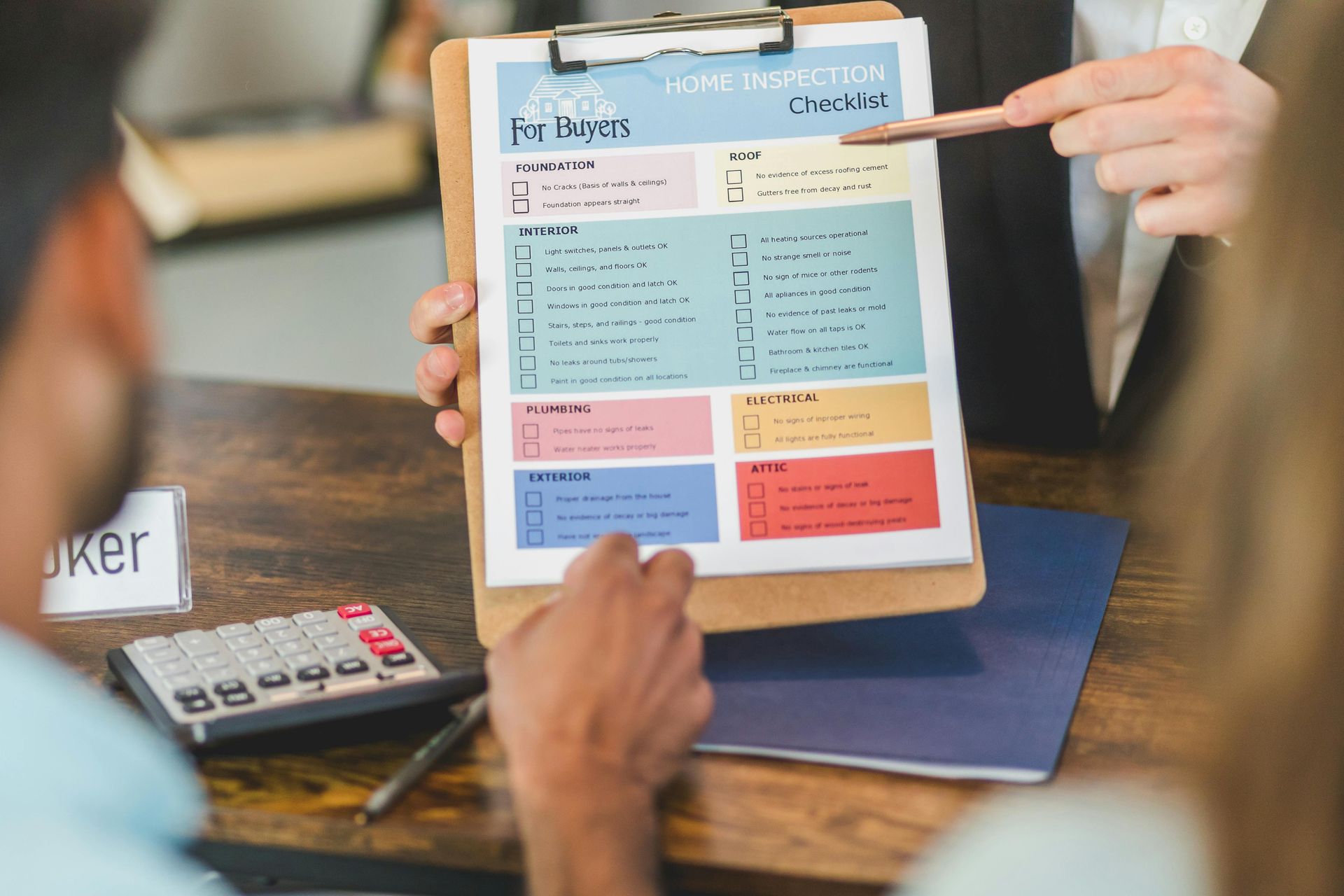Your Complete Guide to Buying a Home: From First Thought to Final Signature
Congratulations! You've made one of the most exciting decisions of your life – you want to buy a home. Whether you're a first-time buyer or looking to upgrade, the home buying journey can feel overwhelming. But don't worry – we're here to break down every step of the process, from that initial spark of interest to holding the keys to your new home.

The home buying process typically takes 30-60 days from start to finish, but proper preparation can begin months earlier. Understanding what lies ahead will help you navigate this journey with confidence and avoid common pitfalls that can delay or derail your home purchase.
Step 1: Determine Your Home Buying Readiness
Before you start scrolling through online listings or driving through neighborhoods, take a honest look at your financial situation and personal circumstances. This self-assessment is crucial because it sets the foundation for everything that follows.
Evaluate Your Financial Health
Start by calculating your debt-to-income ratio, which lenders use to determine how much mortgage you can qualify for. Add up all your monthly debt payments (credit cards, student loans, car payments) and divide by your gross monthly income. Most lenders prefer this ratio to be below 43%, though some programs allow higher ratios.
Review your credit score, as this significantly impacts your mortgage interest rate and loan options. Scores above 740 typically qualify for the best rates, while scores below 620 may limit your options to FHA or other government-backed loans. If your score needs improvement, consider waiting a few months while you pay down debt and address any credit report errors.
Build Your Down Payment Fund
Contrary to popular belief, you don't always need 20% down to buy a home. Many loan programs require as little as 3-5% down, and some government programs offer zero-down options for qualified buyers. However, a larger down payment reduces your monthly payment and eliminates private mortgage insurance (PMI) requirements.
Don't forget about closing costs, which typically range from 2-5% of the home's purchase price. These include appraisal fees, title insurance, attorney fees, and various lender charges. Many buyers overlook these costs and find themselves scrambling for additional funds at closing.
Step 2: Get Pre-Approved for a Mortgage
Once you've determined you're financially ready, your first official step should be getting pre-approved for a mortgage. This is different from pre-qualification – pre-approval involves a thorough review of your finances and results in a conditional commitment for a specific loan amount.
Choose the Right Lender
Research multiple lenders to compare rates, fees, and service quality. Don't just focus on interest rates – consider the lender's reputation, responsiveness, and ability to close on time. Local community banks, credit unions, online lenders, and mortgage brokers all offer different advantages.
Ask potential lenders about their average closing times, fee structures, and loan programs available. Some lenders specialize in certain types of loans (FHA, VA, USDA) or work particularly well with first-time buyers.
Gather Required Documentation
Lenders will need extensive documentation to verify your income, assets, and creditworthiness. Start collecting these documents early:
- Two years of tax returns and W-2s
- Recent pay stubs (typically last 30-60 days)
- Bank statements for all accounts (2-3 months)
- Investment account statements
- Documentation of other income sources
- Proof of any gifts for down payment
- Divorce decrees or child support documentation (if applicable)
Understanding Your Pre-Approval Letter
Your pre-approval letter specifies the maximum loan amount you qualify for, but this doesn't mean you should spend that entire amount. Consider your comfort level with monthly payments, future financial goals, and unexpected expenses. Many financial experts recommend keeping your housing payment (including taxes and insurance) below 28% of your gross monthly income.
Step 3: Find the Right Real Estate Agent
A skilled real estate agent becomes your advocate throughout the buying process. They'll help you find properties, negotiate offers, navigate inspections, and coordinate with other professionals involved in your transaction.
What to Look for in an Agent
Choose an agent who understands your target neighborhoods, price range, and specific needs. Look for someone with recent transaction experience, strong communication skills, and availability to show homes on your schedule. Ask for references from recent clients and don't hesitate to interview multiple agents before deciding.
Your agent should provide market analysis to help you understand pricing trends, neighborhood dynamics, and potential resale value. They should also have relationships with other professionals you'll need, including home inspectors, attorneys, and contractors.
Step 4: Start House Hunting
Now comes the fun part – looking at homes! However, effective house hunting requires strategy and patience.
Define Your Must-Haves vs. Nice-to-Haves
Create a prioritized list of features you absolutely need versus those you'd like to have. Consider factors like:
- Location and commute times
- School districts (even if you don't have children, good schools affect resale value)
- Home size and layout
- Condition and age of major systems (HVAC, plumbing, electrical)
- Yard size and landscaping
- Neighborhood amenities and future development plans
Set a Realistic Budget
Remember that your pre-approval amount is the maximum you can borrow, not necessarily what you should spend. Factor in ongoing homeownership costs like property taxes, insurance, utilities, maintenance, and potential HOA fees. Many new homeowners are surprised by these additional expenses.
Consider the total cost of homeownership over time, including potential repairs and upgrades. Older homes may have lower purchase prices but require more maintenance, while newer homes typically cost more upfront but have lower immediate repair needs.
Step 5: Making an Offer and Negotiating
When you find "the one," your agent will help you craft a competitive offer that protects your interests while appealing to the seller.
Components of a Strong Offer
Your purchase offer includes more than just the price. Key elements include:
- Purchase price based on comparable sales and market conditions
- Earnest money deposit to show you're serious (typically 1-3% of purchase price)
- Financing contingency allowing you to withdraw if you can't obtain a mortgage
- Inspection contingency giving you time to thoroughly examine the property
- Appraisal contingency protecting you if the home doesn't appraise for the purchase price
- Closing date that works for both parties
Negotiation Strategies
In competitive markets, you may need to make your offer more attractive through higher prices, shorter contingency periods, or additional concessions. However, don't sacrifice important protections just to win a bidding war. Your agent will help you understand what's reasonable in your local market.
Consider non-price factors that might appeal to sellers, such as flexible closing dates, personal letters, or agreeing to rent-back arrangements if the seller needs extra time to move.
Step 6: Under Contract – The Due Diligence Period
Congratulations! Your offer has been accepted. Now begins a crucial period where you'll verify that the home is worth your investment and meets your expectations.
Home Inspection
Schedule a professional home inspection within the timeframe specified in your contract (typically 7-10 days). A qualified inspector will examine the home's structure, systems, and safety features, providing a detailed report of any issues.
Attend the inspection if possible – it's an excellent opportunity to learn about your potential new home and ask questions about maintenance needs. Don't expect perfection, especially in older homes, but serious issues like foundation problems, electrical hazards, or major system failures may warrant renegotiation or withdrawal from the contract.
Appraisal Process
Your lender will order an appraisal to ensure the home's value supports the loan amount. The appraiser will examine the property and compare it to recently sold similar homes in the area. If the appraisal comes in below your offer price, you'll need to renegotiate, bring additional cash to closing, or potentially walk away from the deal.
Title Search and Insurance
A title company will research the property's ownership history to ensure clear title and identify any liens, easements, or other encumbrances. Title insurance protects you and your lender against any undiscovered title issues that could affect your ownership rights.
Final Mortgage Processing
While you're conducting due diligence on the property, your lender is finalizing your loan approval. They may request additional documentation or clarification on your financial situation. Respond promptly to any requests to avoid delays.
Avoid making major financial changes during this period – don't apply for new credit, make large purchases, or change jobs if possible. These changes could affect your loan approval and delay or prevent closing.
Step 7: Preparing for Closing
As your closing date approaches, several important tasks need completion.
Final Walk-Through
Typically conducted 24-48 hours before closing, the final walk-through ensures the property is in the same condition as when you made your offer. Verify that any agreed-upon repairs have been completed, all fixtures and appliances are present and working, and no new damage has occurred.
Review Closing Documents
You'll receive a Closing Disclosure at least three business days before closing. This document details your loan terms, monthly payments, and closing costs. Compare it carefully to your original Loan Estimate and ask questions about any changes or unexpected fees.
Prepare for Closing Day
Bring a certified check for your down payment and closing costs (wire transfers are often preferred for large amounts). Bring identification and any additional documents your attorney or closing agent has requested. Plan for the closing to take 1-2 hours, during which you'll sign numerous documents and receive your keys.
Common Challenges and How to Overcome Them
Even well-prepared buyers can encounter obstacles. Here are common challenges and solutions:
Low Appraisal: If the appraisal comes in low, you can negotiate with the seller for a price reduction, bring additional cash to closing, or request a second appraisal if you believe the first was inaccurate.
Inspection Issues: Significant problems discovered during inspection can be addressed through seller repairs, seller credits toward closing costs, or price reductions to account for needed work.
Financing Delays: Last-minute loan issues can often be resolved with additional documentation or alternative loan programs. Maintain communication with your lender and respond quickly to requests.
Competition from Other Buyers: In hot markets, you may lose out on several homes before finding success. Stay patient and don't compromise on your most important requirements.
Timeline Summary
Here's a typical timeline once you're ready to buy:
- Week 1-2: Get pre-approved, find an agent, start house hunting
- Week 3-6: Continue searching, make offers, negotiate contract
- Week 7-8: Conduct inspections, finalize mortgage, address any issues
- Week 9-10: Complete final preparations and close on your home
Conclusion
Buying a home is one of life's major milestones, and understanding the process helps ensure a smoother, less stressful experience. While the journey from decision to closing involves many steps and potential challenges, proper preparation and professional guidance will help you navigate successfully.
Remember that every home buying experience is unique. Market conditions, property types, and personal circumstances all influence your specific journey. Stay flexible, maintain realistic expectations, and don't hesitate to ask questions throughout the process.
The key to success is preparation, patience, and partnering with experienced professionals who have your best interests at heart. From your first pre-approval to your final signature at closing, each step brings you closer to achieving your homeownership dreams.
Ready to take the first step? Contact us today to discuss your mortgage options and begin your journey toward homeownership. Our experienced team is here to guide you through every step of the process, ensuring you make informed decisions that align with your financial goals and lifestyle needs.
Start Your Mortgage Application with Treasure Coast Home Loans
Your Local Mortgage Broker
Mortgage Broker Port St. Lucie, Florida
Learn More About the Mortgage Process.
Check Out Our Google Verified Reviews










